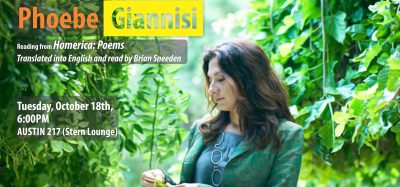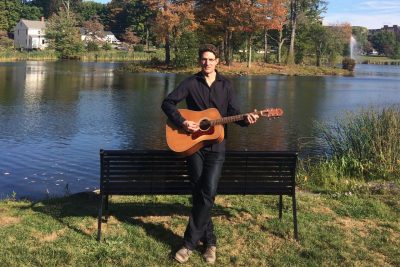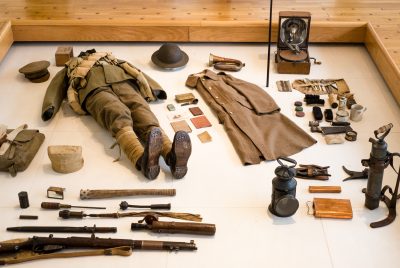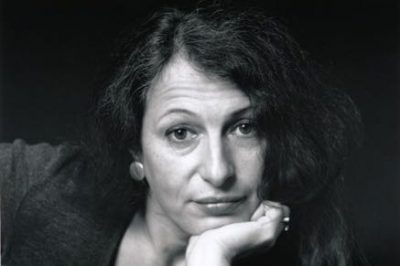 The UConn Literary Translation Program and Creative Writing Program present Pheobe Giannisi. Her event, HOMERICA, will consist of dramatic performances of poetry in Greek and English.
The UConn Literary Translation Program and Creative Writing Program present Pheobe Giannisi. Her event, HOMERICA, will consist of dramatic performances of poetry in Greek and English.
New American Writing compares Giannisi’s work to C.P. Cavafy and Jean Rhys describing it as “completely original […] a complete rethinking of the myths. Perhaps it would be more accurate to call Giannisi’s re-tellings ‘re-weavings’ because they alter the fabric of the stories.”
Giannisi is the author of five books of poetry, including Homerica (2009) which was recently translated into English by University of Connecticut PhD student, Brian Sneeden. She holds degrees from the University of Lyonn II- Lumière and the National Technical University of Athens, and is an associate professor at the University of Thessaly. She co-edits FRMK, a biannual journal of poetry, poetics, and visual arts.
Brian Sneeden, a PhD student in English and Literary Translation Studies, describes translating Giannisi’s work as “a transformative experience. Phoebe Giannisi’s poems require a certain capacity for surrender – both in terms of how one experiences language and its perceived boundaries, but also in regards to the boundaries of English, which does not draw quite as easily as Greek from a vocabulary steeped in so ancient a history.”


